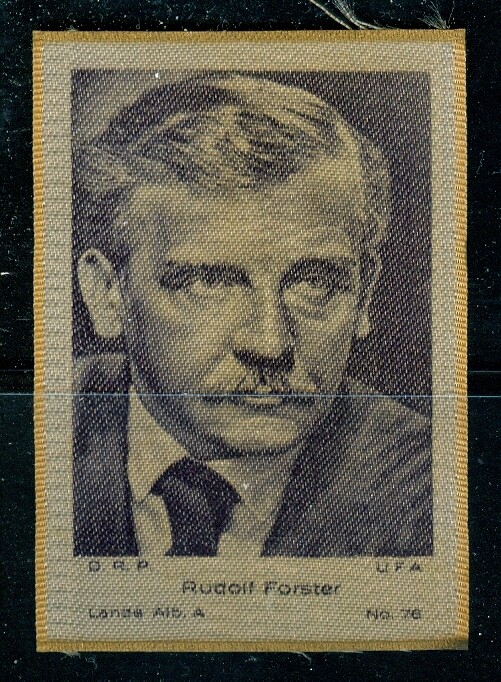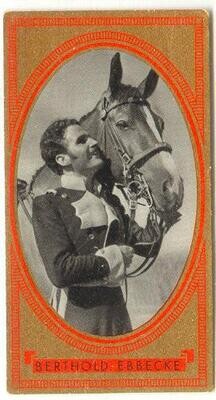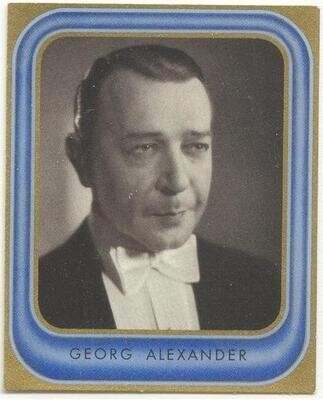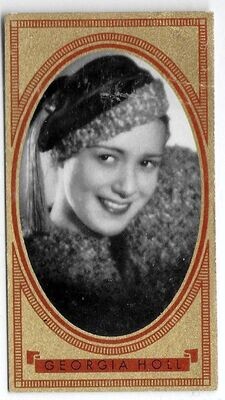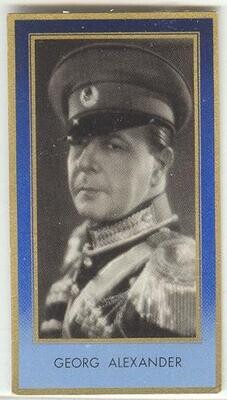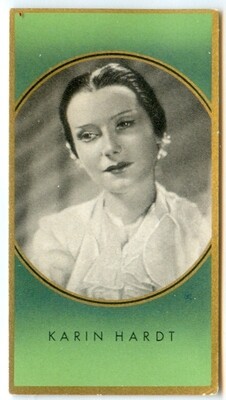
1930s: Rudolf Forster - large silk cigarette premium #72
Rudolf Forster ~ This is silk #72 from an unknown to me cigarette premium series. It is a vintage 1930s original. My scanner did a horrible job on this item which looks super in person. An absolutely amazing example of an 80 (or so) year old item. It is larger than a British or American cigarette card (over 2"x3"). Click on my scan to greatly enlarge the image (opens a new browser window).
Rudolf Forster brought Bertolt Brecht's Mack the Knife (Mackie Messer or Macheath) to the screen in the early German talkie The Threepenny Opera or Die Dreigroschenoper directed by Georg Wilhelm Pabst in 1931. It was probably the first great starring role for Forster. Born 30 October 1884 at Gröbming, Styria, in what was then empire of Austria-Hungary. Died 26 October 1968 at Bad Aussee, Styria, Austria. Rudolf Forster had a long career that reached from silent films through television. His entire career, however, seems to have been spent in Austrian and German films with the exception of Island of Lost Men (1939). Only his early silent efforts had any real success in British or American markets. His only dry spell came after World War II when he suffered the five year boycott that was typical for actors too closely identified with the Nazi regime. His first film role was Graf Ljevin in the 1919 production of Anna Karenina. By 1922 he had graduated to supporting roles in films like Lydia Sanin, in which he starred with that giant of the German screen Hans Albers, and Adam und Eva (1923) with Werner Krauss. He also starred in 1925's The Chronicles of the Gray House with Lil Dagover. Forster had the misfortune to star in Morgenrot (1933) which was the first German film screened after Adolf Hitler came to power and has long been considered a symbol of the Nazi state.. Although Morgenrot or Dawn is the tale of a WWI German U-Boat and does display German values it should not be considered a Nazi film. The film makers actually had monarchist leanings and no love for Hitler. During the Nazi era, Forster did not appear in any major propaganda efforts but did star in Wien 1910 (1943) in which the film makers did manage to make an anti-Nazi statement.
This lot consists of a genuine German cigarette premium issued between about 1930 and 1937. In general, German cigarette cards and premiums make an interesting and inexpensive addition to any collection. The Nazi government of Germany opposed smoking and eventually put an end to cigarette cards. As a result, the native German card collecting hobby never developed to the extent of that in Britain or the United States. As a result, most German premiums and cards cost only a fraction of what might be expected from their American and British cousins.
Large photos are shown smaller than actual size while small ones are generally enlarged to as much as twice their original size. Almost all photos and cards are scanned through protective sleeves or pages which tends to cut the clarity a bit. Enlarged defects tend to look worse than they actually are.
